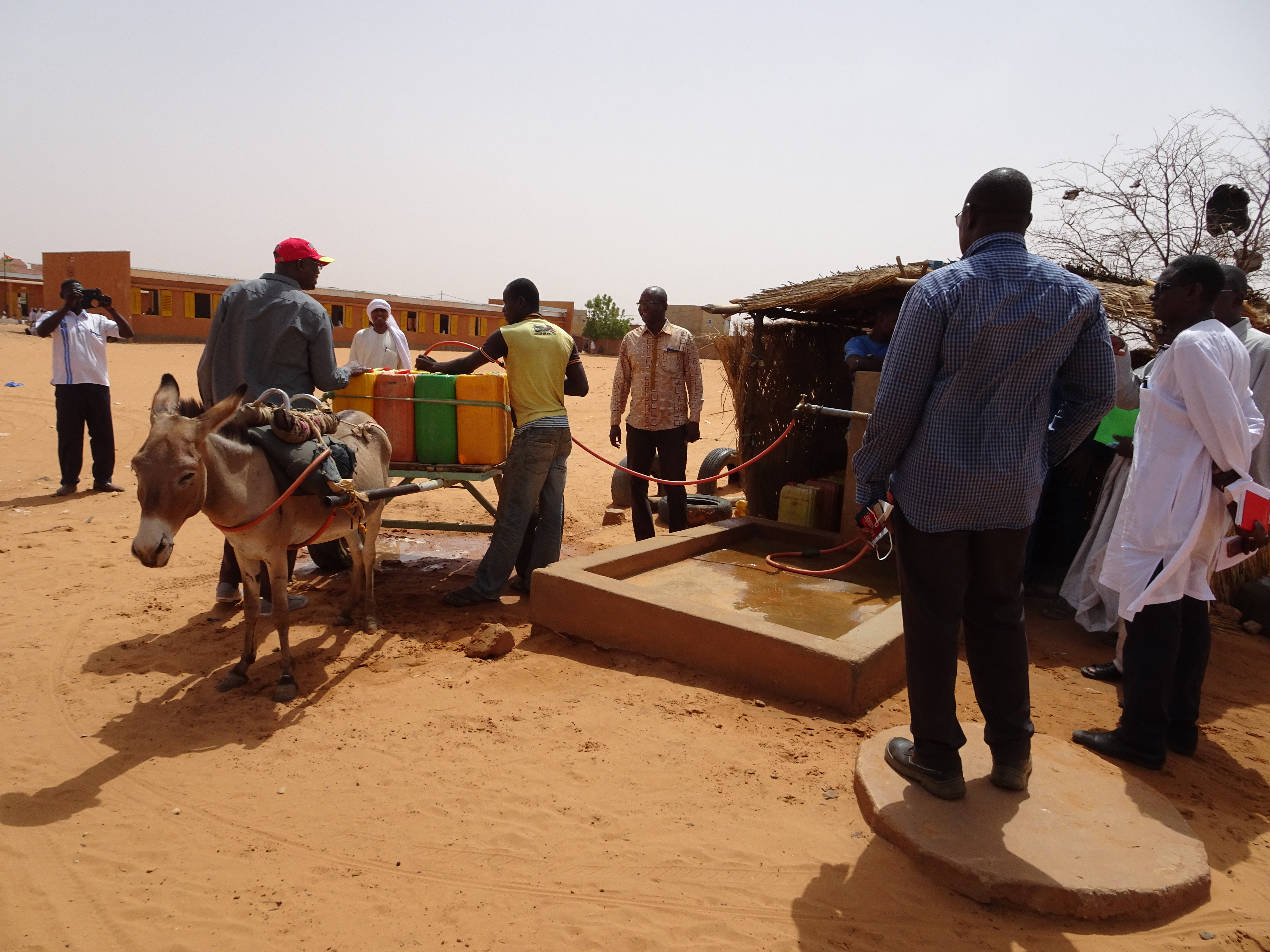*** Version française ci-dessous***
The second day of the Africa RWTD was dedicated to a field visit to get a practical insight into how leaving no one behind is implemented in practice, and how it could be improved. Therefore, we visited an Urban Water Supply and Sanitation project implemented by the World Bank in the peri-urban area of Niamey.
The first stop was a school and kindergarten, where the project constructed latrines, including with disabled access. The participants then went on to the Koubia sludge treatment plant, the first and only sludge treatment plant of Niger. Finally, we visited a sample of public water points and social connections to the water network.

In honour of Menstrual Hygiene Day, Madame Coulibaly Rahila, director of school health from the ministry of secondary education in Niger, initiated a discussion about menstrual health in Niger. Some of the conclusions of the discussion were that it is important to break the taboo around menstrual health, and that it is the responsibility of all; government, schools and parents, fathers in the same way as mothers.

In the afternoon, the field visit was discussed in three groups that focused on different aspects of leaving no one behind within the visited projects, such as:
1. How were vulnerable groups identified, and who are these groups?
2. What are the obstacles and opportunities for vulnerable groups to participate in planning and decision-making in the context of the project?
3. What instruments have been put in place to enable vulnerable groups to participate in planning and decision-making? And how successful have these efforts been?
This day ended with a Water Cinema, during which five participants shared interesting videos of their projects and initiatives.
------------------------------------------------
La deuxième journée des Regional Water Team Days de la région Afrique a été consacrée à une visite de terrain afin d'avoir un aperçu pratique de la façon dont le thème de la rencontre « Ne laisser personne de côté » est mis en œuvre dans la pratique, et comment il pourrait être amélioré. Nous avons donc visité un projet d'approvisionnement en eau et d'assainissement urbain mis en œuvre par la Banque mondiale dans la zone périurbaine de Niamey.
Tout d'abord, nous sommes allés dans une école et un jardin d'enfants, où le projet a construit des latrines, y compris pour les handicapés. Les participants se sont ensuite dirigés vers la station de traitement des boues de Koubia, la première et unique station de traitement des boues du Niger. Enfin, nous avons visité un échantillon de points d'eau publics et de connexions sociales au réseau d'eau.
En l'honneur de la Journée de l'hygiène menstruelle, Madame Coulibaly Rahila, directrice de la santé scolaire au ministère de l'enseignement secondaire du Niger, a lancé une discussion sur la santé menstruelle au Niger. Certaines des conclusions de la discussion étaient qu'il est important de briser le tabou entourant la santé menstruelle, et que c'est la responsabilité de tous : gouvernement, écoles et parents, pères de la même manière que les mères.
Dans l'après-midi, la visite sur le terrain a été discutée en trois groupes qui se sont concentrés sur différents aspects du thème « ne laisser personne de côté » dans le projet visité, tels que :
1. Comment les groupes vulnérables ont-ils été identifiés et qui sont ces groupes ?
2. Quels sont les obstacles et les possibilités pour les groupes vulnérables de participer à la planification et à la prise de décision dans le contexte du projet ?
3. Quels instruments ont été mis en place pour permettre aux groupes vulnérables de participer à la planification et à la prise de décisions ? Et dans quelle mesure ces efforts ont-ils été couronnés de succès ?
Cette journée s'est terminée par un « cinéma de l'eau », au cours duquel cinq participants ont partagé des vidéos intéressantes sur leurs projets et initiatives.
